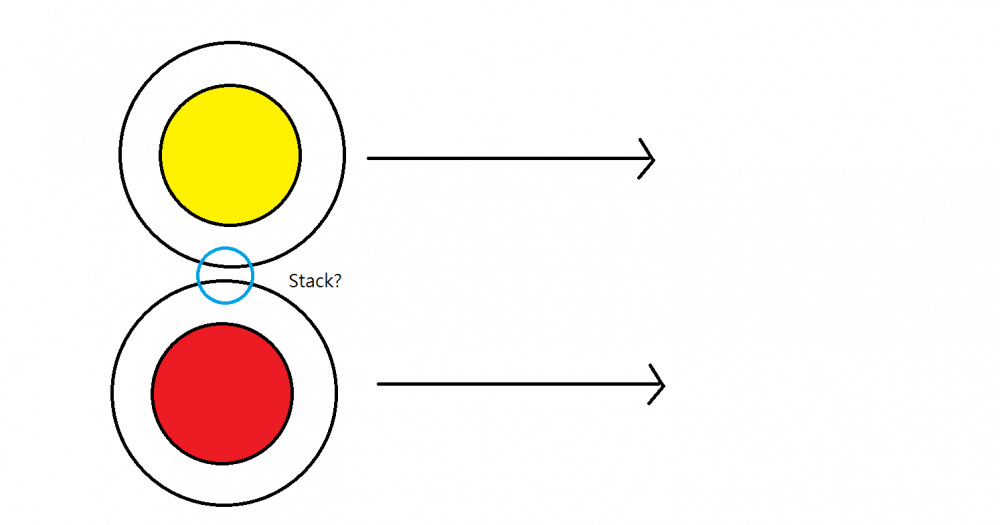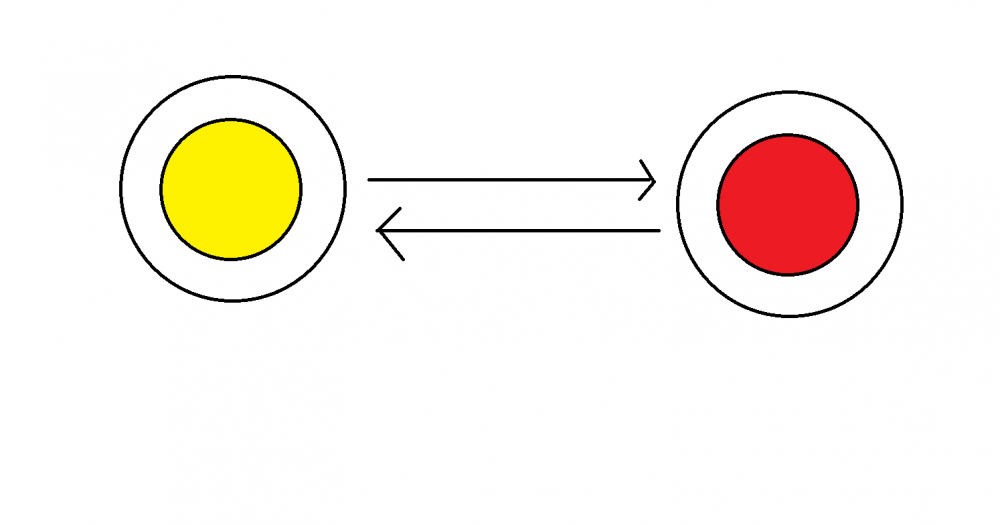-
Two objects going [near] the speed at light(Relativity)
Let us see. You said you cannot evert the object by itself, but if you use the rigor method you will be left with an umbilical cord and therefore unable to connect to the future space time. The only way is if you rigor the future block space time as a separate non-connected instance to the present block of space time. If you attempt to sever the umbilical cord(An analogy of the lingering space time after sphere eversion.), then you could just cut through the present space time without sphere eversion(Which is still an unknown method.).
-
Two objects going [near] the speed at light(Relativity)
That is why we need science?
-
Two objects going [near] the speed at light(Relativity)
Ya, I have a flesh wound on the inside . Perhaps select a telescope? If we are not getting out then how long are we staying in this loop @@?
-
Two objects going [near] the speed at light(Relativity)
Alright, so you got an object going near the speed of light and he perceives the universe with a length close to zero like a contour around the object, but what is outside of this contour? What lies beyond this universe that is being rigored and everted? The future block universe? And once this future block universe gets everted by your perceived reference frame, what happens when you attempt to enter this everted universe? Will you get spits back out?
-
Two objects going [near] the speed at light(Relativity)
O I get it, thanks for your reference sir, respect
-
Two objects going [near] the speed at light(Relativity)
If they are moving in the same direction of motion, would the reference frame stack though? It seems to me that the perceived reference frame has its own distinct identity.
-
Two objects going [near] the speed at light(Relativity)
Two object, yellow and red, is traveling close to the speed of light 3*10^8m/s, and the black circle is the space time that they perceive around them. 1st question. Are the two space time perceive by yellow and red two distinct space times? 2nd question. If they pass through each other(as the arrow shown), does the space time maintain their original identity after they pass through each other?
-
infrared/heat radio
Right, I thought infrared wave modulation would be easy you know, for instance, run it through a filter and it instantly becomes a data wave. Though it does not seem such an application exist yet.
-
infrared/heat radio
Yes, your logic is correct. You do not need an alternating current to produce light from tungsten. Hi Studiot, I am just curious on the data modulation from an electrical current onto the radio wave. Reading a 200 pages paper for this might be a bit too long.
-
infrared/heat radio
Can you apply an alternating current on tungsten to produce light wave for communication? I am trying to mimic how radio wave works, which uses alternating current on an antenna. P.S Seems like someone got it to work already @@, respect. https://en.wikipedia.org/wiki/Li-Fi
-
infrared/heat radio
Is there a radio that works based on infrared? If that is the case does heat works as a radio? But then it would require modulation. Using infrared camera we could modulate these waves.
-
A cloud of electrons
We all know it is possible to generate plasma in mid air like lightning, but is it possible to isolate out the electrons from the gas and group them together with just the electrons?
-
Spinning motor in zero gravity+vacuum
No problem, why should I see a doctor @@?
-
Spinning motor in zero gravity+vacuum
So I was looking at this video about Tesla turbine and I came up with a new idea. What if we use a magnetic field, like a motor, and increase its speed inside a vacuum with 0 gravity acting on its friction so it just keeps spinning faster and faster? Well I think one of two things would happen, either the material would not hold(breaks apart), or a whole hole be created in space time, leading to a previous, next block of the universe. Let me know what you think.
-
Hyperspectral imaging system
About the video I posted regarding thermal imaging. The idea is to have a "sensitive sensor" capable of trapping and reading infrared wavelength(That is where the CCD camera comes in). An analogy would be the eye and the retina and how we see visible light. To answer your question, a light wave does not exhibit a 3 dimensional structure, but the timing does. https://midopt.com/solutions/monochrome-imaging/infrared-imaging/

fredreload
Senior Members
-
Joined
-
Last visited

